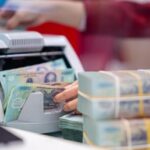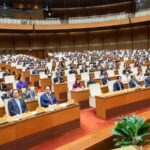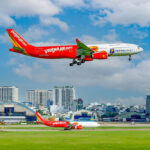The Vietnam Sugar and Sugarcane Association (VSSA) has just sent Official Dispatch No. 112/CV-HHMD to the National Assembly’s Standing Committee, providing feedback on the Draft Law on Special Consumption Tax (amended) for sugary drinks.
In VSSA’s Official Dispatch, it is stated that on the morning of November 22, 2024, the National Assembly discussed the Draft Law on Special Consumption Tax (amended). According to the draft law, the government proposed a 10% special consumption tax on soft drinks with a sugar content of more than 5 grams per 100ml.
VSSA noted that the delegates were provided with incomplete information, and some of the proposed amendments regarding sugar products were illogical and inconsistent with the actual consumption of sugar and sweeteners in Vietnam and worldwide, as well as the recommendations of the World Health Organization (WHO).
INCONSISTENCY IN THE DEFINITION OF “SUGARY DRINKS ACCORDING TO VIETNAMESE STANDARDS”
VSSA argued that the Draft Law on Special Consumption Tax (amended) is based on WHO recommendations and international experiences on taxing sugary drinks to guide consumption. However, an inconsistency arises as it does not use the definition provided by WHO or other international organizations for sugary drinks but instead adopts the definition of soft drinks according to Vietnamese Standards (TCVN). There are significant differences between these definitions.
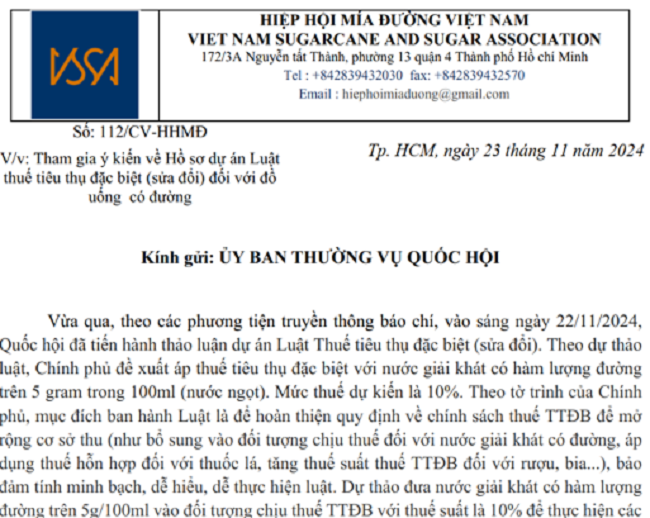
The Vietnamese Standard TCVN 12828:2019 defines: “Soft drinks (water-based beverages) are ready-to-drink products for hydration purposes, prepared from water, and may contain sugar, food additives, flavors, and may be supplemented with natural ingredients, vitamins, and minerals, with or without carbonation.” According to this definition, only soft drinks containing sugar are subject to the tax.
“In Vietnam, HFCS is currently the main sweetener in soft drinks, not sugar derived from sugarcane.”
Excerpt from the Official Dispatch of the Vietnam Sugar and Sugarcane Association.
However, according to WHO: “Sugary drinks are defined as all drinks that contain free sugars. Free sugars refer to monosaccharides (such as glucose, fructose) and disaccharides (such as sucrose or table sugar)
Similarly, according to the World Bank Group, sugary drinks subject to taxation are defined as: “Sugar-sweetened beverages (SSBs) are non-alcoholic beverages that contain caloric sweeteners, such as sucrose (table sugar) or high-fructose corn syrup (HFCS)… SSBs contain free sugars that are easily absorbed”
According to this definition, soft drinks containing sugar or HFCS are subject to the tax. It is evident that WHO and the World Bank Group have broadened the definition of “sugary drinks” to “drinks containing free sugars” when employing the measure of taxing soft drinks with sweeteners.
According to data from the General Department of Vietnam Customs, the volume of imported HFCS is showing a rapid increasing trend year over year, with most of it being imported by soft drink manufacturing companies. In 2023, the volume of imported HFCS exploded, with more than double the volume compared to 2022.
Therefore, using the definition of “sugary drinks according to Vietnamese Standards” is unreasonable and inconsistent with the definitions provided by WHO and international practices of “drinks containing free sugars” when applying special consumption tax measures. In the context of Vietnam, this could lead to the risk of misidentifying and missing taxable objects, hindering the implementation of the Party and State’s guidelines on protecting people’s health.
INCONSISTENCY IN THE PROVISION OF SUGAR CONTENT ABOVE 5G/100ML
As the determination of the definition of “sugary drinks according to Vietnamese Standards” is outdated and no longer aligns with WHO’s definition and international practices of “free sugars” when applying special consumption tax measures, the proposal to include “soft drinks according to Vietnamese Standards (TCVN) with a sugar content of more than 5g/100ml” as taxable items also becomes inconsistent.
In the case of using HFCS as a sweetener (which most soft drink companies in Vietnam are doing), the criterion of “sugar content above 5g/100ml” cannot be applied.
“Recently, there have been individuals and organizations who have suggested not imposing special consumption tax on sugary drinks as it would affect the sugar industry and sugarcane farmers.
The Vietnam Sugar and Sugarcane Association confirms that it has no relation or authorization with these individuals or organizations, and they have no authority to represent the Association, which is currently the only legal socio-professional organization of Vietnamese citizens and organizations operating in the sugarcane and sugar production sector.”
Excerpt from the Official Dispatch of the Vietnam Sugar and Sugarcane Association
VSSA confirms that the community’s health interests should take precedence over the business interests of any industry, including the sugar industry.
According to VSSA, WHO data shows that around 85 countries have implemented this tax on sugary drinks. Notably, all international organizations have identified the harmful agent in sugary drinks as free sugars, not just sugar as previously thought.
VSSA proposes to the National Assembly’s Standing Committee and the Government to inform all National Assembly deputies of the Association’s suggestions on the following issues:
First, regarding the taxable object, it is proposed to remove the phrase “sugary drinks according to Vietnamese Standards (TCVN)” and replace it with “sugary drinks (sugary drinks) containing free sugars (free sugars), including drinks containing sugar and drinks containing HFCS.”
Second, it is recommended to remove the criterion of “sugar content above 5g/100ml” as it is no longer practical and may lead to the risk of overlooking the main taxable object, which is drinks containing HFCS.
Third, consider adopting the experiences of some countries in the ASEAN bloc, including the Philippines and Indonesia. The Philippines imposes a special consumption tax with different tax rates for sugary drinks and drinks containing HFCS, and applies a higher tax rate (twice as much) for drinks containing HFCS. Indonesia’s experience involves imposing trade defense tax on HFCS while also proposing a special consumption tax on sugary and carbonated drinks ranging from 1,500 rupiah to 2,500 rupiah per liter, depending on the type of drink.
In the case of Vietnam, VSSA proposes a tax rate of 10% for sugary drinks and 20% for drinks containing HFCS.
[On Seat 47] ‘EC40 Wants to Win, Volvo Vietnam Needs to Educate Customers: Using Electric Cars Without Public Charging Stations is Normal’
With a price tag of VND 1.739 billion, the Volvo EC40 could succeed in the compact luxury electric car segment if the Swedish automaker can make the lack of widespread public charging infrastructure seem like a non-issue to prospective customers.
The Magical Honda Super Cub: A Disney-inspired Edition for the Vietnamese Market
Introducing the Honda Super Cub Disney – an iconic motorcycle that is now being offered for sale by a private importer in Vietnam at a price that surpasses that of a new SH 350i. With its unique design and collaboration with Disney, this Super Cub is a rare find and a true collector’s item. Step back in time with this classic bike, featuring a charming Disney-themed design that is sure to captivate both motorcycle and Disney enthusiasts alike.
“The Speaker’s Call to Action: Expediting the Creation of a Legal Framework for Emerging Issues to Catalyze Vietnam’s Development”
After 29 and a half days of diligent, scientific, democratic, and responsible work, with a spirit of innovation and a timely resolution of difficulties, bottlenecks, and blockages, the 8th Session of the 15th National Assembly has successfully concluded, having accomplished all its proposed agenda items. This session was marked by a strong focus on economic and social development, national defense, security, and improving the lives of the people.

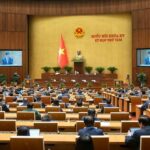
![[On Seat 47] ‘EC40 Wants to Win, Volvo Vietnam Needs to Educate Customers: Using Electric Cars Without Public Charging Stations is Normal’](https://xe.today/wp-content/uploads/2024/12/v-quote-te-150x150.jpg)

